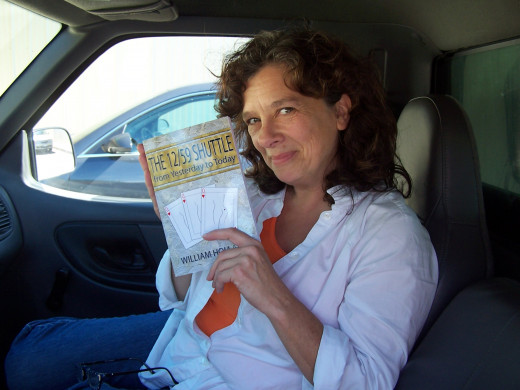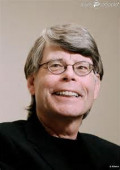Where Does Fiction End and Fantasy Begin?
Born from a Mailbag Question
I recently received a question for my Mailbag series from a friend named Brad. Let me share that question with you.
“We talked about this subject several times before, but it keeps popping up . The subject is credibility of scenarios in the police and basically the good guy versus bad guy stories.
Most people can suspend reality in the storyline to enjoy the total picture. I have always had this problem.
Question, Am I supposed to ignore reality in scripts?
I understand that these are stories, but they should also relate to the real odds of these events synchronizing to the story. What are the real odds that this could actually happen?
It is one things if the genre allows for dispensing reality, but another things when this is not a parody on real life.
My wife, the reader, really likes the TV show Blacklist. I like the start James Spader, and his character, but I think that the script was written by college students during a Frat party.
It is not just one or two impossible sequences of events but most of the ones in the show. It happens episode after episode.
I know that you don't watch much TV, but I am sure this kind of writing is also found in fiction books. I also understand the irony of my question when applied to "Fictions", but fiction shouldn't mean fantasy. It should for the stories that could be real, just change the names and the events to protect the innocent.”
What a great observation and question, so much so that it deserves an article…so here it is.

Let’s Begin with Two Definitions
Before we can discuss fiction and fantasy in literature, it seems to me we really need good definitions of both.
Fiction is described by Merriam-Webster as “written stories about people and events that are not real. Literature that tells stores which are imagined by the writer. Something that is not true.”
Fantasy, meanwhile, is defined by Merriam-Webster as “something that is produced by the imagination…an idea about doing something that is far removed from normal reality. A book, movie, etc., that tells a story about things that happen in an imaginary world.”
Even to the most casual observer, it should be apparent that there is overlap in these two definitions. The main difference, it seems to me, is that fantasy is “far removed from normal reality” whereas fiction is considered simply not real but still not far removed.
Are you confused yet?
If so, I think you can now appreciate Brad’s question.
Let’s look at a couple examples of literary fiction that really border on fantasy.

FICTION
I have mentioned before that I am a HUGE fan of James Lee Burke. I don’t think there is a better writer alive today in the mystery genre of fiction. His depictions of scenes are exquisite. His characters seems real to me. They are frail and yet strong, flawed and yet so likeable. His main character, Dave Robicheaux, is a man I would love to meet in person but at the same time he would terrify me. Dave’s best friend, Clete Purcell, has a heart the size of Louisiana and yet he is close to being a sociopath.
So far so good. The characters are fictional and yet they are close enough to reality to keep us from floating into fantasy.
But then the stories unfold and we have a problem.
These two characters, one a cop and one an ex-cop, solve problems by creating havoc. They are fully capable of taking a sawed-off shotgun and killing bad guys on the streets of Louisiana, and they manage to do so without ever being punished. How is that possible? It seems to me that this fits under the category of “far removed from normal reality,” and yet it is classified as fiction.
How about “Moby Dick,” or “The Old Man and the Sea?” Are those not far removed from normal reality?
The Other End of the Spectrum
And then we have “To Kill A Mockingbird.” It would seem to me that this is as close to reality as we can get in fiction. Yes, the story is fictional, but it could have easily been a non-fiction book as it accurately depicts life in a small Southern town during the Great Depression.
Or we could look at the works of Bruce Catton, the Pulitzer Prize-winning author of a Civil War trilogy that was so accurate as to make you feel you were on the battlefields of Bull Run and Antietam. That trilogy was described as historical fiction, but in fact it was 90% history and 10% fiction.
Back to Brad’s Observation and Question
So, should fiction ignore reality?
I don’t know if it should, Brad, but I think in most cases it does, and I can think of only one reason why it does…..because it sells….and it sells because people want to suspend and escape reality for a few hours.
And that’s a topic for another day!
I understand where Brad is coming from. He’s a black and white, by the numbers, embrace reality kind of guy. Unfortunately, fiction suspends all of that and makes it hard for guys like Brad to enjoy a fictional book, tv show or movie. I have no problem with it and in fact I much prefer to write fiction.
The aspect of Brad’s question that I found interesting, though, and the aspect I still don’t have an answer for, is what distinguishes fiction from fantasy? How can the Lee Child series of books about Jack Reacher be considered fiction when they are every bit as “far removed from reality” as the Superman books, which are fantasy?
I don’t have an answer?

Practical Application for Writers
This would all be just an interesting intellectual exercise except for the fact that writers who produce novels must, at some point, decide what classification to give to their books. Is their novel a general fiction? Is it a fantasy? Is it a suspense book or a thriller? Is it mainstream?
These questions will drive you nuts if you let them.
My latest novel, “Shadows Kill,” could easily fall under the category of suspense, but it is also a thriller and yes, it is also a mystery. What do I call it when it comes time to query agents and publishers? The answer to that question is fairly important. Some agents only handle mysteries and won’t touch a thriller. Some only handle general fiction and not suspense novels.
See where I’m going with this one? If I pick the wrong genre I may be greatly hurting my chances of getting published, so I better pick correctly. Even in the world of self-publishing, an author must make this decision before downloading the manuscript onto Amazon.
Join me on my writing blog
- William Holland | Helping Writers to Spread Their Wings and Fly
Discussions and tips about the craft of writing
Sorry, Brad
I have no definitive answer for you, and yet I suspect your question is pretty damned important.
The only thing I know with any certainty is that I love being a writer of fiction. I’m reminded of John Denver’s song “Thank God I’m a Country Boy.” In my case, the song title would be “Thank God I’m a Fiction Writer.” I’ll leave it to others to decide whether my fiction is fantasy.
2015 William D. Holland (aka billybuc)
“Helping writers to spread their wings and fly.”









